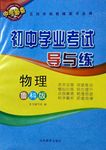题目内容
完形填空(共20小题;每小题1.5分,满分30分)
Pooja Dhingra should have been a lawyer. But while studying at university in Mumbai, she decided to quit her major and to something more .
Remembering helping her mother in the during her childhood, she decided to work with food instead of legal cases. So she her parents to let her go to study cooking.
One day, her friends took her to one of the best macaron(杏仁小圆饼)shops in Paris.
After just one , Ms Dhingra determined that when she to Mumbai she would open her own macaron store, the first of its kind in India. Upon graduation, she started macarons in her parents' kitchen, but it was a complete .The hot and wet weather in Mumbai made it to make delicious cakes. After 60 failed ,she finally got an ideal recipe. being both young and female meant she faced additional ."The biggest problem was to get people to take you .”she tells us. "For example, I had to buy machinery, I would have to ask my father to make these calls for me. " However, she opened her first shop in 2010. To sales in a city where very few people knew what a macaron was, Ms Dhingra _ free samples to customers. The cakes were immediately popular, and sales soon took off thanks to the evaluation. .
Now, Ms Dhingra is the of three busy macaron shops. She has planned to her business across the country. One newspaper article called her " the macaron queen of India" .
1.A. design B. literature C. law D. medicine
2.A. creative B. confident C. enthusiastic D. effective
3.A. bedroom B. study C. kitchen D. basement
4.A. convinced B. warned C. forgave D. reminded
5.A. drink B. effort C. breath D. bite
6.A. replied B. traveled C. walked D. returned
7.A. eating B. making C. bringing D. selling
8.A. comfort B. honor C. failure D. success
9.A. appealing B. difficult C. smooth D. available .
10.A. competences B. assumptions C. statements D. attempts
11.A.Yet B. Still C. Even D. Just
12.A. praises B. sacrifices C. tasks D. challenges
13.A. slightly B. pleasantly C. seriously D. peacefully
14.A. if' B. after C. though D. unless
15.A. suddenly B. eventually C. eagerly D. unwillingly
16.A. check B. promote C. ban D. decrease
17.A. put away B. smoothed away C. cleared away D. gave away
18.A. negative B. positive C. plain D. critical
19.A. customer B. inventor C. owner D. driver
20.A. expand B. sell C. abandon D. Protect
 七星图书口算速算天天练系列答案
七星图书口算速算天天练系列答案 初中学业考试导与练系列答案
初中学业考试导与练系列答案Between 2 and 3 pounds of wonder, it controls everything we say, do or think, who we are and what we care about. The way we walk or laugh or figure out things. What we like and the talents we possess. How we see and talk and run and jump and process our food.
The brain uses 20 percent of our body’s oxygen and 20 percent of its blood. Somewhere within its protein, fat, 100,000 miles of blood vessels and 100 billion nerve cells, it helps us remember where we put our gym shoes. Change our temperature so we don’t die because of the heat or cold. Speed us up or slow us down. Help us choose between orange juice or orange?flavored drinks.
Its complexity are stunning, far beyond anything most of us can imagine. To keep this work of art as polished as possible we need to eat right, exercise and keep mentally stimulated. Good nutrition helps brain cells communicate with each other. Exercise stimulates a hormone in our brain that improves memory. Mental stimulation keeps you sharp even as you age.
“It’s very important that we tell people to be physically active and mentally active,” said neurologist Malcolm Stewart. “People cannot stop aging, but you’re able to reduce the damage; you’re able to keep the function up.”
Following are Dr. Stewart’s advice for improving brain health:
Nutrition | Avoid fast food. Follow the old adage(格言): For breakfast, eat like a king; for lunch, like a queen; for supper, like a beggar. |
Exercise | Do a combination of stretching aerobic and muscle?strengthening every day. |
Mental games | Try to have a sense of hope about the future. Do puzzles. Listen to music. Reach out to others to make their lives better. |
1.The purpose of the author in writing this passage is to ______.
A. inform us how the brain works
B. give us advice on how to keep the brain healthy
C. tell us that the brain plays an important role in our lives
D. show how special the brain is to us
2.The underlined word “stunning” means ______.
A. interesting B. strange
C. significant D. amazing
3.According to the text, more exercise ______.
A. keeps our mind sharp
B. helps improve our memory
C. gives our brain a rest
D. is good for brain cells communicating with each other
4.In order to keep brain healthy, we should avoid ______.
A. eating a good lunch B. doing puzzles
C. eating a large supper D. taking aerobic exercise

